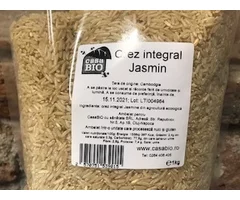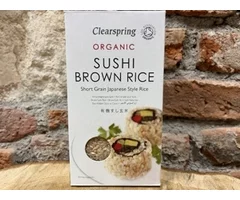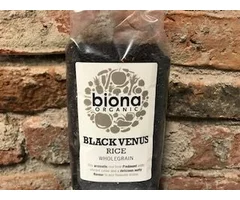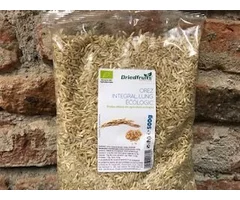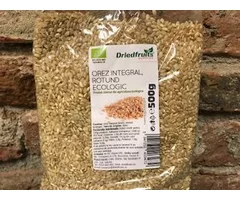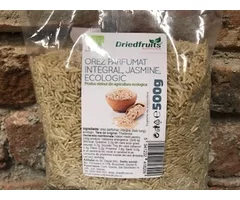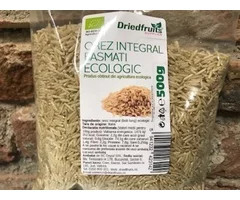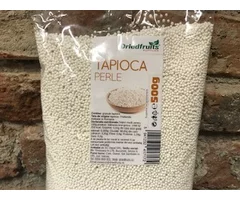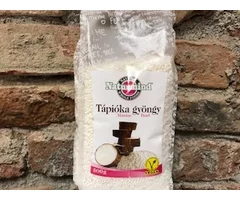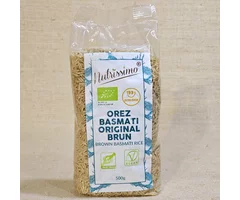Nutrition studies show that a balanced and healthy diet, which includes regular consumption of whole grains can help prevent the health of the body with an essential role in maintaining proper body weight, protecting the heart and helping to maintain a normal blood sugar level.
In the preparation of whole grains, the whole grain is used, thus keeping intact the essential elements contained in its three parts:
OUTER MEMBRANE- rich in fiber, the complex of B vitamins, minerals, proteins, and phytonutrients (elements that are found naturally in plants and are beneficial for health);
INNER MEMBRANE-containing starch, carbohydrates, proteins and small amounts of B vitamins;
GERMEN (the embryo from which the plant sprouts) - the inner part rich in essential nutrients: minerals, B vitamin complex, vitamin E and phytonutrients.
All these nutrients will give you energy and strength to work every day.
When the grains are ground or refined, the peel and germ are removed, leaving only the inner membrane. Thus, much of the nutritional value of the grain disappears, because of all its three layers, the outer membrane and the germ contain the largest amounts of nutrients.
In the case of whole grains, all three parts of the grain are preserved, just so as not to lose any of its benefits. Each part of the whole grain has specific nutritional values, but the combination of the three parts is the basis of the unique and effective health benefits of whole grains. Therefore, the consumption of whole grain foods brings all the additional benefits of nutrients that cannot be provided by fiber alone.
A healthy diet is the only source of minerals for the human body because it cannot produce them. Without minerals, no being on earth could survive. These essential elements represent about 5% of the weight of the human body.
Cereals are rich in minerals such as calcium, iron, magnesium, phosphorus or zinc. Calcium is important for the bone system and teeth. It prevents osteoporosis and many cardiovascular problems. Foods rich in calcium are sesame, whole grains, hand honey, amaranth ,.
Iron increases the body's ability to work and strengthens the immune system. Iron intake relieves the signs of fatigue and reduces the risk of anemia. Recognized sources of iron are: whole grains, wholemeal bread, green peas, spinach, black lentils or green lentils, raspberry honey, mung beans.
Magnesium plays a very important role in increasing the body's resistance to infections and improving intellectual performance. Together with calcium, magnesium fights stress and depression. It is also an important element in the proper functioning of the cardiovascular system. You can get magnesium from whole grains, vegetables, nuts, honey or cashews.
Calcium, accompanied by calcium, helps maintain healthy teeth and bones. Important sources of phosphorus are whole grains or dried fruits.
Zinc increases the body's resistance to infections. At the same time, it has an important role in accelerating wound healing and in substantially reducing the level of cholesterol in the body. Peas, whole grains, beans are rich in zinc.
Without vitamins the body cannot function normally. They have the role of giving you strength and energy every day and the lack of any vitamin can upset your whole body. You can find vitamins in many plant products such as fruits, vegetables, legumes, crucifers, cereals.
Vitamins play an essential role in the proper functioning of the nervous system, the immune system and vision. However, it is important to know that vitamins cannot fulfill their role in the body in the absence of other nutrients, especially minerals.
However, the vitamins in cereals are specially dosed in the recommended daily portion exactly as your body needs. A serving of cereal is rich in vitamins C, B1, B2, B3, B5, B6, B12 and folic acid.
The main vitamins present in the cereal content:
Vitamin B1: - Increasing role, nervous system function, carbohydrate metabolism. It is also found in brewer's yeast, hazelnuts, vegetables, husked rice, raw pollen.
Vitamin B2: - Role in growth, reproduction, metabolism of carbohydrates, fats and proteins. In addition to cereals, they also contain vitamin B2 and green vegetables, brewer's yeast, raw pollen.
Vitamin B3: - Essential role in the synthesis of sex hormones, cortisone, thyroxine and insulin. Sources of vitamin B3 are also dates, plums, hazelnuts, brewer's yeast, beef, raw pollen.
Vitamin B5: - An important role in the energy metabolism of cells, participates in the formation of certain hormones. It is found in most foods, the richest foods being brewer's yeast, dried vegetables, raw pollen.
Vitamin B6: - Role in protein metabolism (production of antibodies and red blood cells). Your body can get this vitamin from soy, melon, cabbage, paddy rice, peanuts, nuts, brewer's yeast, raw pollen.
Vitamin B12: - Role in the formation and regeneration of red blood cells, stimulating the functioning of the nervous system and in protein, carbohydrate and lipid metabolism. This vitamin is found in black cereals, quinces, Brazil nuts, raw pollen.
Vitamin C: - Main role in the formation of collagen, factor of growth and recovery of cells, helps the absorption of iron, stimulates the immune system. You can also have it by consuming rosehips, sea buckthorn, citrus, blueberries, blackberries, raspberries, green vegetables, tomatoes, sweet potatoes, currants.
Folic acid: - Essential role in the formation of red blood cells, in protein metabolism. It is found in dark green leafy vegetables, carrots, brewer's yeast, egg yolk, melon, apricots, pumpkin, rye flour.
